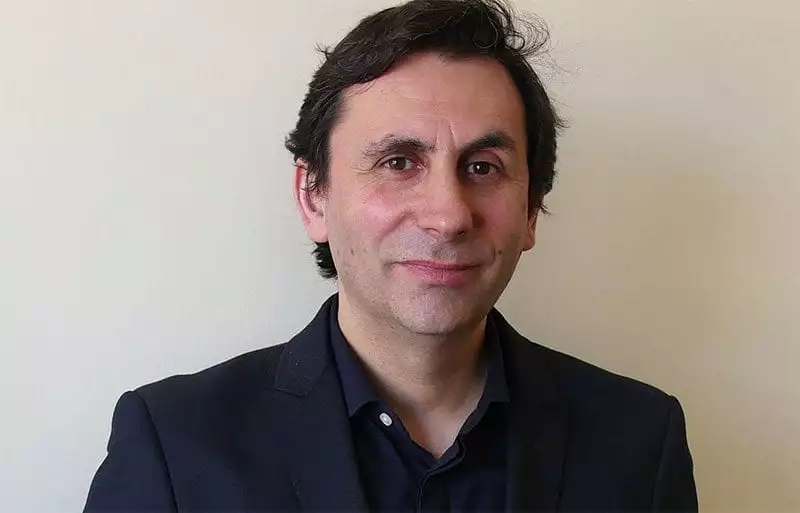Humaniq to use blockchain for social good
A London/Luxembourg start-up is planning to use the blockchain to create a new kind of bank that will help tackle global poverty. It will enable people to use its cryptocurrency to donate or lend money, and bring banking services and income generation opportunities to “the last billion”.
Humaniq has been developed by a group of people, many with experience in cryptocurrencies, who have seen the potential of biometrics, blockchain and mobile to help solve a number of social and economic problems.
The challenge they aim to tackle is considerable. “Over 2 billion people in the world don’t have bank accounts. About 1.5 billion people don’t have any identification documents. They are excluded from the global economy and not reachable or interesting for traditional banks.”
Advertisement
Yet Humaniq believes that currently available technology can help resolve this. “All you need to start an account is your face, a simple smartphone and any internet access.”
And this is a huge opportunity. These people represent “a billion new potential users and employees connected to [the] global financial ecosystem”.
Appropriately enough, Humaniq has been raising funds to help it expand. It did so via an ICO (Initial Coin Offering), inviting people to invest in it and its infrastructure. It has secured $5 million, with over 10,000 people contributing in its first month. The average investment so far as been around $400. The ICO closed at the end of April. In so doing it is creating its own cryptocurrency, the ‘HMQ’.
Humaniq’s altcoin will trade on five crypto-currency exchanges. It has also appointed Deloitte to provide it with legal and accounting support.
Humaniq is operated as a ‘profit with a purpose’ company, to tackle poverty in emerging economies like Kenya by offering another solution for the people who suffer from financial exclusion, many who live on less than USD$2.50 a day, have no formal identity, little education, and are bankless.
Humaniq’s objectives
While the ability to donate or lend money is one of the functions of Humaniq, its vision is much larger than that. Specifically it aims to enable the following:
- Give people a biometric identity who don’t have one.
- Offer microlending services to people at affordable and fair rates after they establish identity
- Offer the ability to earn cryptocurrency by doing digital work on their devices (similar to Amazon Mechanical Turk).
- Offer the ability to convert that cryptocurrency into fiat currency on the ground at real locations.
- Offer remittance services that will be almost at zero cost and instantly for senders from outside the country.
- Offer people from the outside the ability to donate or lend money (at zero to fair interest rates) and have a mobile relationship with the people they engage with – to help lift them out of poverty – empowering them. Like Kiva but without the high interest costs of agents in the middle.
- Provide a strong and unique utility value to the cryptocurrency they issue in the ICO for the initial supporters of the project.
- Disrupt the incumbents currently clogging up the value chain and offer a leaner, fairer and more honest financial infrastructure that has to potential to lift people out of poverty quickly.
Interview with Dinis Guarda

Dinis Guarda is the CEO of Humaniq. He previously founded intelligentHQ.com and socialmediacouncil.eu. He has worked on projects with the UN and governments around the world, as well as a variety of financial, technology and consumer companies such as Reuters, MasterCard, P&G, Philips, Vodafone, and Nike.
He told UK Fundraising that he saw a “huge opportunity” to build financial inclusion and as a sustainable service.
Even though further funding was being sought, Humaniq’s activities to reach the “one billion unbanked people” were already underway. The mobile app had already been developed and was in use, and projects were taking place in Ghana and Nigeria.
Although the blockchain sector was growing rapidly, Guarda did not see competition as a challenge. “We need to work together”, he said, explaining that, where possible, he wished to work with existing players and understand what worked. He saw any potential competitors more as “possible partners”.
As part of this need to understand Humaniq is in discussions with a range of national and international NGOs, and has a Save the Children staff member on its advisory board.
It has looked at the achievements and approaches of organisations such as Kiva and the microfinance service Grameen Bank, and is keen to make the most of what they have learned, such as the focus on the success of female entrepreneurs.
The idea for Humaniq was established only a year ago, with the first team members running a successful pre-ICO funding campaign as recently as December last year.
Guarda sees blockchain technology as “more of an enabler than a destroyer”. While it does make it easier, cheaper and perhaps even more transparent for individuals or organisations to transfer money to beneficiaries than via traditional charities, he commented that “only charities that ignore new technology will fail”. He added: “If an NGO builds value it will survive”.




